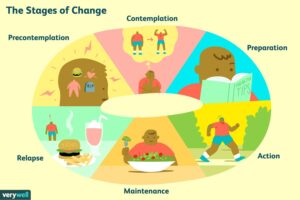15 Sep Happy National Recovery Month!
Each year, we celebrate September as Recovery Month – a 31-year-old national recognition for people in recovery and an opportunity to highlight recovery stories, link people to treatment, and promote evidence-based substance use disorder treatment. This year, FACES & Voices is sponsoring Recovery Month with the theme “Join the Voices for Recovery: Celebrating Connections.”
Connection – a central pillar of recovery – sustains hope, mutual aid, and participation in treatment. But how do we stay connected during a worldwide pandemic with social distancing measures and stay at home orders? By March 2020, social lives for many became meeting for Zoom Happy Hours, playing quarantine drinking games, and putting wine by the case on auto-ship. For people who struggle with drug and alcohol use, coping with the intersection of isolation, stress, fear, uncertainty, racism, tenuous employment, and financial hardship is a tremendous challenge.
You are not alone
If you are struggling with your mental health or substance use, you are certainly not the only one According to the CDC, 40.9% of surveyed individuals reported at least one adverse mental or behavioral health condition (symptoms of anxiety, depression, trauma, and traumatic stress), and 13% started or increased their substance use to cope with stress. ProPublica reports that “more than twice as many people have died or are suspected to have died of opioid overdoses in the first five months of the year in Cook County”, and this upward trend is evident in suburban counties as well.
Stages of Change
You too can engage in recovery even if you are using drugs and alcohol. Change rarely happens all at once. The Transtheoretical Model of Change outlines several stages that you might see yourself or a loved one in:
Pre-contemplation: Unaware of the problem and not considering a change
Contemplation: Considering a change but feeling conflicted about it
Preparation: Trying out small changes and collecting information
Action: Taking direct steps towards a particular goal
Maintenance: Keeping up the new behaviors. This can be a tricky stage!
Relapse: Going back to old behaviors. People can feel demoralized and disappointed at this stage, but don’t give up. At this stage, you can learn from what did not work and move forward.
Recovery is not linear and has many twists and turns.
It’s not just Substance Abuse Counseling – there are multiple pathways to recovery
Recovery is about much more than abstaining from drugs and alcohol. There are as many ways to define recovery as there are people who have walked the path of recovery. For some, recovery is a spiritual journey of healing, connecting with a higher power, and building community. For others, recovery can be creating a life of fulfillment through employment, service, family, friendship, and peer mentorship. Harm reduction philosophy and interventions share the guiding principle of “any positive change” and emphasize the inherent dignity and right to autonomy for all people.
The good news is that there are options. Perhaps your recovery will involve:
- Support groups – peer-led groups like Alcoholics Anonymous, SMART Recovery, Refuge Recovery are everywhere, and many are hosting online meetings.
- Co-occurring mental health and substance use disorder treatment – SAMHSA Treatment Locator
- Working with an outpatient individual, couples, or family therapist at North Shore Family Services
- Medication Treatment like buprenorphine, naltrexone, and methadone to address withdrawal symptoms and cravings – MAT Provider Finder
- Life-saving medications like Naloxone (reverses opioid overdose) – found at drug stores like Walgreens or the Chicago Recovery Alliance
- Physical health care
- Re-engaging with your talents, interests, and passions
- Much more
Taking care of each otherIf you are considering changes to your substance use or looking for additional support for yourself or your child by a substance abuse professional, then contact our intake coordinators at North Shore Family Services to discuss how to best meet your needs.
If you are concerned about a loved one, try to approach them with a non-judgmental attitude while offering your help to get them connected with resources. We can celebrate Recovery Month by taking care of ourselves and each other.

North Shore Family Services is a team of skilled and approachable therapists that help parents, children, teens, adults, and couples reduce anxiety and stress, learn effective problem-solving techniques, and manage emotions and behaviors that inhibit personal, school, family, and relationship success. We make therapy a productive, engaging and relaxing place for everyone to work hard and make the improvements they desire. To find the right-fit therapist for you and your family, visit our clinician’s page.




Sorry, the comment form is closed at this time.